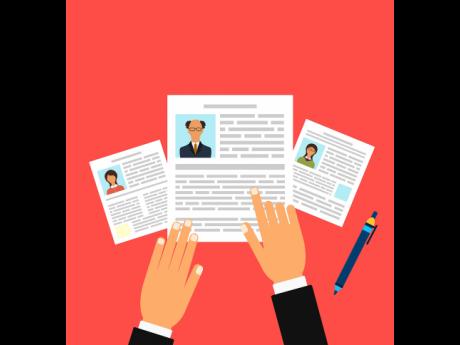Glenford Smith | The length of a resume
Thank you for the motivation and inspiration you deliver through your column every week. I am benefiting from it. Now, I am not verbose. I think if a resume is too wordy, people are turned off from you. I keep mine concise with bullet points. What do you think about this?
- Lorraine
Thank you for your letter and for your commendations. It is good that you are benefiting.
I think, generally, it is a good point not to make your resume or cover letter wordier than is necessary. But you can take this to an extreme if you make a hard-and-fast rule out of the principle. So, I would warn not to truncate your resume to fit some notion of the perfect length. It is a fact, though, that you can turn some employers off with a show of verbosity.
The length of your resume or cover letter should be just long enough to give the necessary information. It shouldn't be longer or shorter than that. Let that be a rule of thumb in writing your resume. Conciseness and pellucidity should be the guiding factors where the length is concerned. At the same time, don't cut your resume and leave off relevant information.
If you follow the guidelines given in this column for writing your resume and cover letter, you should be fine.
Your idea about using bullet points is an excellent one. Bullet points allow you to highlight and emphasise different parts of your resume and put them across to a prospective employer more effectively. In this way, you get to keep your resume to about two pages letter size. You should try and keep it within the two-page guideline as much as possible.
Do not make the print size smaller, in order that they hold, though - the typical size is 12. I don't figure you have this problem, however. The resume should be easy to read. Most employers do not have the time to digest every resume crossing their desk, so make it concise, as you are doing.
I have written this bit of advice multiple times in this column, but it bears repeating; it is relevant, especially as you don't put extraneous stuff in your resume. It becomes essential for you to include the relevant information. The questions that the employer is asking are: Is this person able to do an extraordinary job? And, will this person fit in with the rest of the team? These are the two questions running through her mind constantly.
This underscores the importance of doing relevant research on the company. Then write down your information that makes the answers to these questions stand out. Not everything is necessarily put on your resume. You put on the most germane and eye-catching things for this application.
Another job application might require a different focus and may call for different things. In every case, though, it should be very clear, by looking at your resume, what you can do for the company.
- Glenford Smith is a motivational speaker and success strategist. He is the author of 'From Problems to Power' and co-author of 'Profile of Excellence'. Email: glenfordsmith@yahoo.com.

